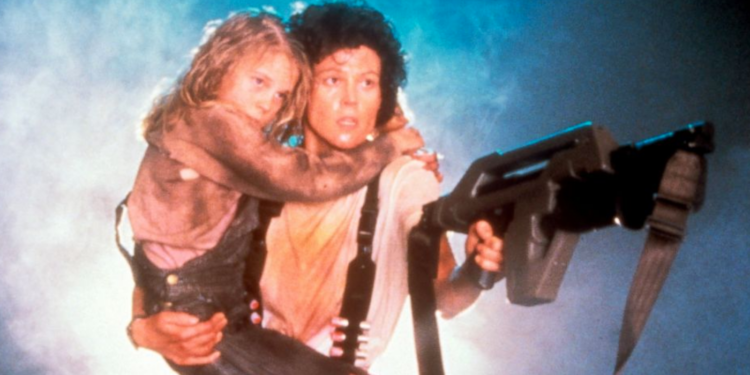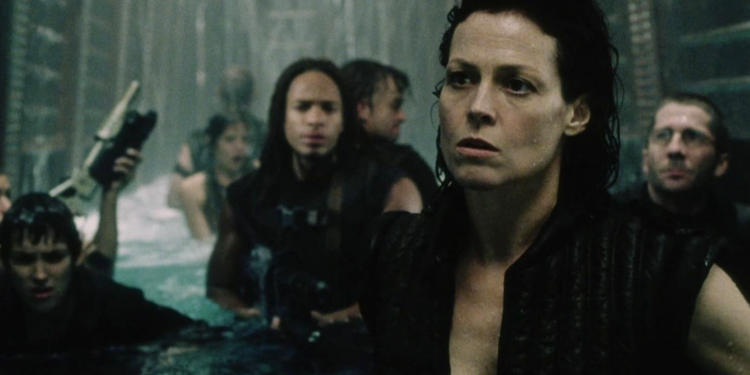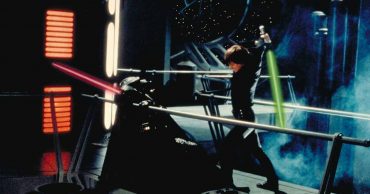The Alien franchise stands as one of cinema’s most enduring sagas, captivating audiences for over five decades since the release of Ridley Scott’s seminal film Alien in 1979. Blending elements of horror and science fiction, the series has crafted a distinctive universe where the terror of the unknown collides with dystopian themes, weaving gripping narratives that explore the human psyche amid unimaginable horrors. From the chilling depths of space aboard the Nostromo to the relentless pursuit of xenomorphs across varied landscapes, the Alien franchise has continually pushed the boundaries of genre storytelling, influencing countless films and creators along the way.
Its legacy is marked not only by its iconic characters and groundbreaking visual effects but also by its exploration of existential themes, making it a cornerstone of modern filmmaking that resonates with both nostalgic fans and new generations of viewers alike. In 2024, the franchise is still going strong with the release of Alien: Romulus. So, let’s dive into every movie in this pantheon universe.
Alien (1979)
Ridley Scott’s Alien is a horror masterpiece that has truly stood the test of time, captivating audiences since its release in 1979 and kicking off the Alien franchise. Set aboard the commercial space tug Nostromo, the film follows the crew as they encounter a deadly extraterrestrial creature after responding to a distress signal on a distant planet. This chilling encounter escalates into a fight for survival, as the iconic xenomorph picks them off one by one, creating an atmosphere of dread and claustrophobia.
Alien not only launched the careers of its talented cast, including Sigourney Weaver, whose portrayal of Ripley would become a feminist icon in sci-fi cinema, but also elevated Scott to the status of a filmmaking rockstar, celebrated for his visionary direction and groundbreaking visual style. The film’s dystopian themes, such as the dehumanizing effects of corporate greed and the isolation of space travel, resonate profoundly with contemporary audiences, making it a timeless reflection on humanity’s relationship with technology and the unknown. Its blend of horror and sci-fi continues to influence the genre, ensuring its place as a classic that remains as unsettling and relevant today as it was over four decades ago.
Aliens (1986)

After the glaring success of Alien, sci-fi and horror lovers had to wait seven years until a sequel arrived. However, to most, it was well worth the wait. Although Ridley Scott did not return to the director’s chair, the sequel had James Cameron at the helm. Aliens was released in 1986 when Cameron was fresh off the success of 1984’s The Terminator. For this anticipated sequel, he brought forth his penchant for sci-fi and turned the movie into much more of an action vehicle. Considering he created a classic out of The Terminator with a limited budget, Aliens gave him a chance to work his magic with a larger budget of $18.5 million.
While Aliens shifted gears to blend in with the 80s action craze, it still kept its elements of terror present, making for a unique action horror flick. The movie also managed to gain immense critical praise, a rare feat in the world of action cinema. To that, Sigourney Weaver found herself nominated for her first Academy Award for Best Actress, further cementing her place as one of the leading stars of the 80s.
Alien 3 (1992)
Released in 1992, Alien 3 picks up immediately after the explosive events of Aliens, revealing that Ripley has crash-landed on the prison planet Fiorina 161, the only survivor of the Colonial Marine spaceship Sulaco, along with a deadly Alien organism. Stripped of the support of her former allies, Ripley finds herself surrounded by a group of violent inmates, each grappling with their own demons, as they face an even more harrowing threat: the xenomorph that begins to stalk them one by one. Although Alien 3 received mixed reviews at the time of its release, it is a significant film in the career of David Fincher, who helmed this ambitious project as his directorial debut. Fincher’s dark, atmospheric style and unique storytelling approach served as a pivotal training ground, paving the way for his later classics like Se7en and Fight Club.
Alien: Resurrection (1997)

Released in 1997, Alien: Resurrection marked a bold return to the franchise, set 200 years after Ripley’s sacrificial demise in Alien 3. In a daring twist, scientists aboard the military spaceship USM Auriga successfully clone Ripley, aiming to extract the xenomorph within her to study it for potential bioweapons. However, the experiment goes awry when the creature escapes, unleashing chaos on the ship and forcing Ripley and a group of misfit space smugglers to confront the resurgent terror.
While Alien: Resurrection did not receive the critical acclaim of its predecessors, it managed to captivate audiences, ultimately surpassing Alien 3 at the box office by grossing $161.4 million worldwide. The film, directed by Jean-Pierre Jeunet, infused the series with a surreal, stylistic flair, exploring themes of identity and humanity while pushing the boundaries of the Alien franchise, even if it did not resonate as strongly with critics or fans when compared to the earlier installments.
Watch Alien Resurrection on Hulu
Alien vs. Predator (2004)
Although many diehard fans may not count Alien vs. Predator as part of the Alien franchise, by rights – it is an official entry. The film came a year after Freddy vs. Jason, a horror movie that pitted two of the most iconic onscreen killers against each other. Alien vs. Predator followed a similar formula by squaring off two iconic monsters of sorts. The film was quickly met with harsh criticism with many feeling the franchise had been pushed into inflated and campy territory. However, it managed to gross a modest gross $177.4 million worldwide against a production budget of $60–70 million.
Watch Alien vs. Predator on Hulu
Alien vs. Predator: Requiem (2007)
Following the critical disappointment of Alien vs. Predator in 2004, the franchise attempted to revive itself with Alien vs. Predator: Requiem, released in 2007. However, the film suffered from a lack of A-list talent both in front of and behind the camera, ultimately leading to a weak and convoluted storyline that failed to resonate with audiences or critics. Set in the small town of Gunnison, Colorado, the film pits the two iconic species against each other once again, but its clunky narrative and subpar execution rendered it largely forgettable soon after its release. Despite featuring the visceral action fans hoped for, Requiem managed to only gross $130.2 million worldwide, a disappointing figure that underscored the growing sentiment that the franchise had lost its creative momentum and struggled to find its place in a rapidly evolving cinematic landscape.
Watch Alien vs. Predator: Requiem on Hulu
Prometheus (2012)

After the Alien franchise had begun to lose it relevancy in cinema, Ridley Scott returned to the realm that made him a household name and directed Prometheus in 2012. The film delves into humanity’s origins through the story of a team of scientists and explorers who embark on a voyage to a distant moon, following clues to the creation of life on Earth. Led by the determined Elizabeth Shaw, portrayed by Noomi Rapace, and accompanied by the enigmatic android David, played by Michael Fassbender, the crew uncovers dark secrets about their creators, the Engineers, that spiral into a harrowing struggle for survival. With stunning visuals and Scott’s signature atmospheric style, Prometheus was heralded by many as a return to form for the franchise, featuring a stellar cast that also included Idris Elba and Charlize Theron. While the film sparked debates about its philosophical themes and narrative choices, it successfully reignited excitement around the Alien franchise, establishing a fresh artistic vision that drew both fans and newcomers back into its gripping existential exploration.
Alien: Covenant (2017)
In 2017, riding the wave of success from Prometheus, Ridley Scott held onto the reins a little longer for Alien: Covenant. This film serves as both a sequel to Prometheus and a prequel to the original Alien franchise, diving deeper into the mysteries surrounding the Engineers and the origins of the Xenomorphs. The plot follows the crew of the colony ship Covenant, led by Captain Oram (played by Billy Crudup) and his fiancée Daniels (Katherine Waterston), as they stumble upon a remote planet that initially seems to be an uncharted paradise. However, as they explore further, they encounter the surviving synthetic David from Prometheus, who harbors dark secrets and a sinister agenda. As the crew grapples with their unfolding horrors, they soon realize that they are not just pioneers on a new world, but also prey to a terrifying alien menace. Alien: Covenant blends elements of horror and science fiction, continuing Scott’s exploration of creation and destruction while expanding on the lore of the franchise, albeit to mixed critical reception.
Alien: Romulus (2024)
Alien: Romulus is a unique entry into the Alien franchise as the film’s timeline exists in the year 2142, which makes the movie a sequel to Alien and a prequel to James Cameron’s follow-up Aliens. The plot follows a group of young space colonists who come face to face with the most terrifying life form in the universe while scavenging the deep ends of a derelict space station. With rapidly-rising filmmaker Fede Alverez (Evil Dead, Don’t Breathe), co-writing the script and manning the lens, Alien: Romulus feels closest in tone to the first two movies than any other film in the saga. In fact, Alvarez even enlisted the special effects crew from Aliens to work on the movie’s creatures, ensuring he paid homage to the original classics. To that, this nostalgia seems to have paid off as the movie has received a string of positive reviews and opened theatrically with a gross of $42,003,361. Want to read about another iconic sci-fi movie? Here’s where the cast of Interstellar are now.
 Follow Us
Follow Us




